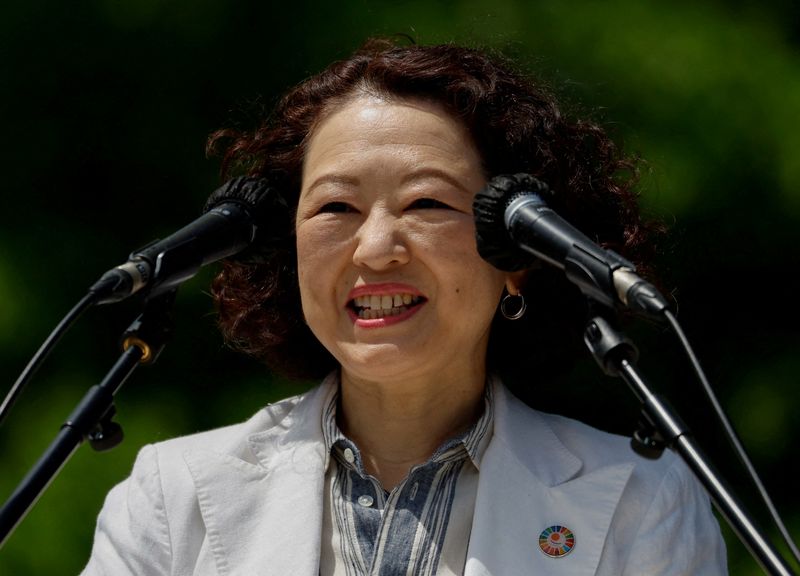Investing.com’s stocks of the week
By Anton Bridge and Tetsushi Kajimoto
TOKYO (Reuters) -Japanese annual pay increases this year must exceed the 5.1% secured last year because real wages continue to fall, the head of the Rengo trade union group said on Friday.
President Tomoko Yoshino said the impact of rising prices meant the group was focused on securing a result that outstripped last year's, which was the biggest increase in 33 years.
"Even after last year's wage hikes I think there are few people who feel their real living conditions have improved," Yoshino said in an interview.
The outcome of the "shunto" labour negotiations is a barometer for spending and durable inflation in Japan, and a key factor that influences the central bank's monetary policy decisions.
Rengo is formally seeking wage increases of 5% or more in this year's wage negotiations.
Real wages, which take into account the impact of inflation, fell in November for the fourth straight month, data showed this month, highlighting how rising prices, especially food costs, have hit the wallets of everyday Japanese.
Yoshino spoke to Reuters hours before the Bank of Japan raised its short-term interest rate target to 0.5% on Friday. She declined to comment on the central bank's policy ahead of the outcome.
The BOJ has set sustained, broad-based wage hikes as a precondition for raising borrowing costs and on Friday it said many firms had indicated they would offer solid pay hikes at the "shunto" negotiations this year.
Smaller firms, however, have typically struggled to pass on rising costs, including personnel costs, to customers, Yoshino said, adding that this year's negotiations will centre on how SMEs can find the resources to fund the desired increases.
Rengo has targeted hikes of at least 6% for smaller firms, compared with the 4%-5% they achieved last year, to narrow the income gap with workers at bigger companies.
Larger firms such as Uniqlo parent Fast Retailing said it would increase wages for full-time headquarters and sales employees by up to 11% from March, while Nippon Life Insurance (NSE:LIFI) and Mitsui Fudosan (OTC:MTSFY) have said they are planning hikes above 5%.
The government has repeatedly pushed companies to aggressively increase pay. Years of deflation during Japan's "lost decades" of economic downturn have meant that many Japanese workers have now fallen behind those in other countries when it comes to pay and purchasing power.
"Talented young people are going abroad," Yoshino said. "Japan has the lowest wages among developed countries so if wages don't rise we'll be left behind."
